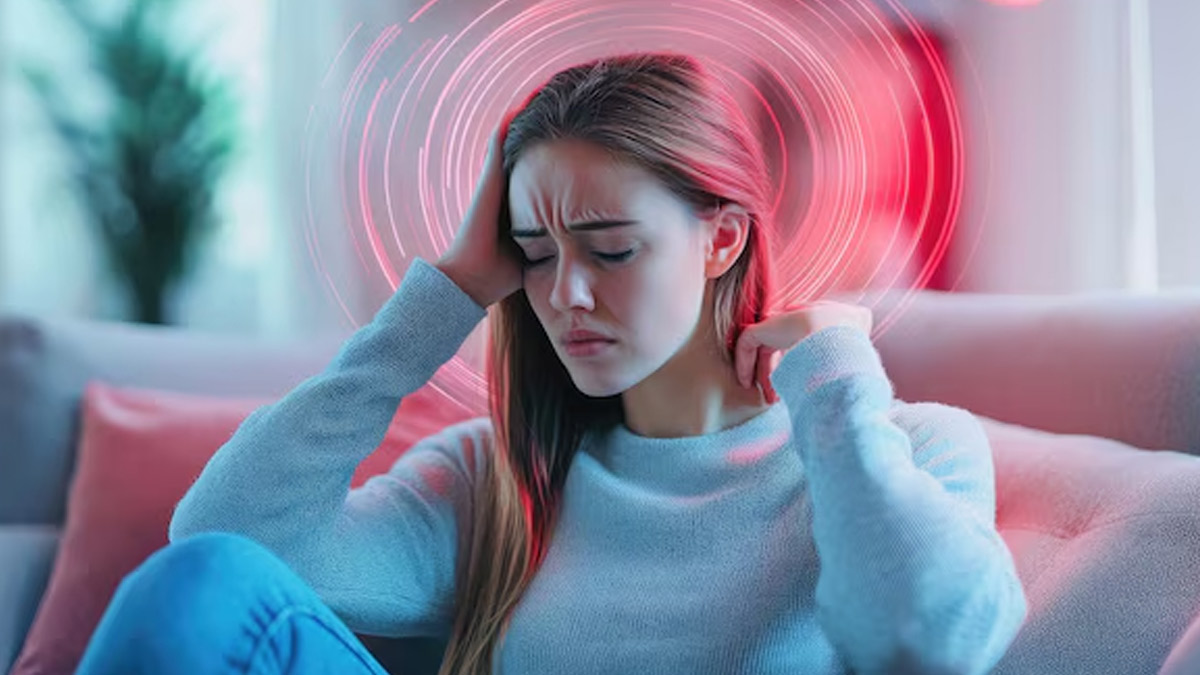
Feeling dizzy once in a while is something most of us brush off as harmless. But when these dizzy spells happen often, whether in children or women, they can point to underlying health issues that deserve attention. Speaking with the OnlyMyHealth team, experts explain the common causes, how to differentiate between them, and when it is time to seek urgent care.
Table of Content:-
Why Children Experience Frequent Dizzy Spells
-1755682683392.jpg)
According to Dr Hemanth Kumar N, Consultant - Paediatrics and Neonatology, Motherhood Hospitals, Kothanur, dizziness in children is not always a sign of something serious.
“Children may feel dizzy due to dehydration, low sugar levels, anaemia, ear infections, eye diseases, or conditions like juvenile diabetes. Sometimes even fatigue can trigger it,” he says.
He stresses that while occasional dizziness may pass quickly, “frequent repetitions need to be evaluated by a physician to exclude conditions with worse implications.”
Also Read: How To Handle Mild Dizziness Caused By Humidity At Home
Dizziness From Dehydration Vs. Inner Ear Problems
Parents often confuse lightheadedness due to lack of fluids with dizziness from an inner ear disorder. Dr Hemanth explains:
“Dehydration due to the failure to drink appropriate amounts of fluids has the potential to lead to dizziness. This can be corrected with rehydration. Inner ear vertigo can also induce spinning in the head, usually with nausea and vomiting. Vertigo that does not promptly resolve with fluids and might need to be evaluated by a doctor and treated with particular intervention.”
Spotting Low Blood Pressure Dizziness
-1755682694269.jpg)
One common culprit behind dizzy episodes is low blood pressure, especially when children suddenly change position.
“Often dizziness is associated with postural or orthostatic hypotension,” Dr Hemanth says. “If a child feels relief after sitting or lying down, it could be due to low blood pressure. Doctors confirm this by checking blood pressure in different positions.”
First-Aid Tips For Sudden Dizziness In Kids
When dizziness strikes, quick action can help prevent falls or injuries.
“In order to get relief from the symptoms, freeze all movements, steady your body, and take deep breaths. Either sitting down or lying down can reduce the possibility of falling. If possible, sip on some water. One can continue with routine once all symptoms have resolved completely,” advises Dr Hemanth.
Can Food And Nutrition Play A Role?
Yes, what your child eats, or doesn’t eat, can be a major factor. “Skipping meals, iron deficiency, or low vitamin B12 can all trigger dizziness,” Dr Hemanth says. He stresses the importance of balanced meals at regular intervals to prevent recurring episodes.
Also Read: Feeling Dizzy After the Gym? An Orthopedist Explains the Warning Signs You Shouldn’t Ignore
Why Women Are Prone To Dizziness

For women, dizziness often ties back to changes in their bodies. Dr Prathima A, Consultant - Obstetrician & Gynaecologist, Motherhood Hospitals, Banashankari, says, “In most cases, dizziness in women is due to hormonal changes related to the menstrual cycle or menopause, low blood pressure, dehydration, or ear disorders. Stress and sleep deprivation can worsen these episodes.”
She adds that pregnancy, low blood sugars, or certain medications are also common triggers.
Recognising Dehydration Vs. Vertigo In Women
“Dehydration produces a lightheaded feeling that gets better with fluid intake,” explains Dr Prathima. “But vertigo from inner ear problems feels like spinning, even when resting or lying down. The most frequent cause is benign paroxysmal positional vertigo (BPPV), where symptoms worsen after certain head movements like rolling over in bed.”
First Steps Women Should Take During Dizziness
When dizzy spells strike, Dr Prathima advises:
“Sit or lie down immediately, focus on a stationary object, and breathe slowly. Having a snack and water is crucial, especially if dizziness is due to low blood sugar or dehydration. Avoid sudden movements and hold onto support if needed.”
When Dizziness Is A Red Flag
While most dizzy spells are harmless, some need urgent medical attention.
Dr Hemanth warns that in children, “symptoms like blurred or double vision, severe headache, speech difficulty, chest pain, or weakness on one side” can signal serious conditions such as stroke or neurological illness.
Dr Prathima shares a similar warning for women: “Sudden weakness, chest pain, fainting, or vision problems must never be ignored. Women often underplay these ‘mild’ symptoms, but early treatment can save lives.”
Conclusion
Most dizzy spells in children and women are linked to everyday causes like dehydration, anaemia, or hormonal changes. Simple steps like drinking enough water, eating balanced meals, and resting well can make a big difference. However, frequent or severe dizziness, especially when paired with red-flag symptoms, should be evaluated by a doctor without delay.
Also watch this video
How we keep this article up to date:
We work with experts and keep a close eye on the latest in health and wellness. Whenever there is a new research or helpful information, we update our articles with accurate and useful advice.
Current Version